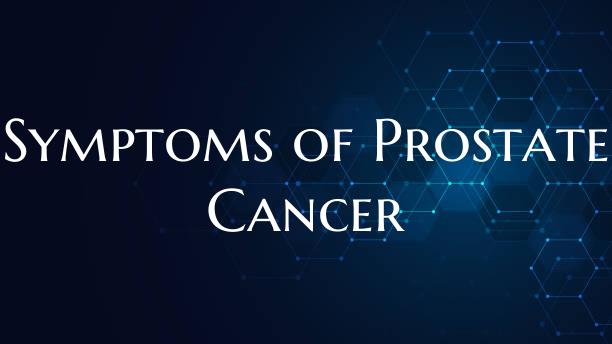
Symptoms of Prostate Cancer
Prostate cancer is a common form of cancer that affects men. Understanding the symptoms of prostate cancer is crucial for early detection and effective treatment. While many men with prostate cancer may not experience any symptoms in the early stages, being aware of potential warning signs can help in catching the disease early.
Here are some common symptoms of prostate cancer:
1. Urinary Changes: Men with prostate cancer may experience changes in their urinary habits. This can include increased frequency of urination, particularly at night (nocturia), difficulty starting or stopping urination, weak urine flow, or pain or burning sensation during urination.
2. Blood in Urine or Semen: The presence of blood in the urine (hematuria) or semen can be a warning sign of prostate cancer. If you notice any unusual discoloration in your urine or semen, it is important to consult a healthcare provider for evaluation.
3. Erectile Dysfunction: Prostate cancer can sometimes cause erectile dysfunction, the inability to achieve or maintain an erection. While this symptom can have various causes, it is essential to discuss any changes in sexual function with a healthcare provider.
4. Pelvic Discomfort: Some men with prostate cancer may experience pain, discomfort, or pressure in the pelvic area. This can manifest as persistent pain in the lower back, hips, or upper thighs that does not improve with time or typical remedies.
5. Bone Pain: Advanced prostate cancer can spread to the bones, leading to bone pain, especially in the spine, pelvis, or ribs. This pain may be constant or worsen at night and could be accompanied by unexplained fractures or bone weakness.
It is important to note that these symptoms can also be caused by conditions unrelated to prostate cancer. However, if you experience any of these symptoms, especially if they persist or worsen over time, it is essential to consult a healthcare provider for proper evaluation and diagnosis.
Regular prostate cancer screenings and discussions with your healthcare provider about your risk factors are essential for early detection and prompt treatment if prostate cancer is present. Remember, early detection greatly increases the chances of successful treatment and recovery from prostate cancer.